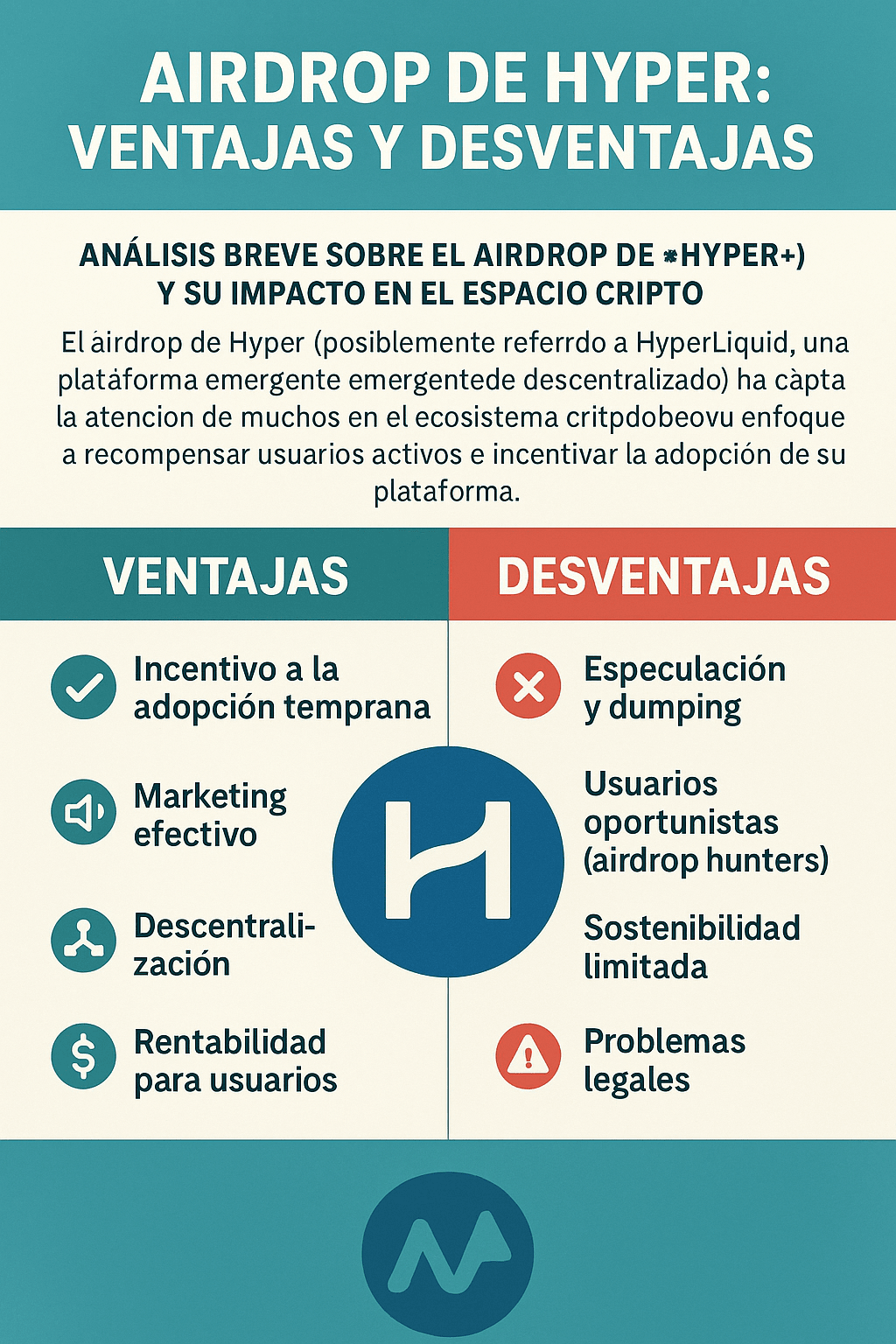The Hyper airdrop (possibly referring to HyperLiquid, an emerging decentralized trading platform) has captured the attention of many in the crypto ecosystem due to its focus on rewarding active users and incentivizing adoption of its platform. Like other airdrops, it involves distributing free tokens to users who meet certain criteria (platform usage, NFT ownership, staking, etc.).

Advantages:
1. Early Adoption Incentive: Rewards those who use the platform from the beginning.
2. Effective marketing: Creates expectation, visibility and active participation on social networks.
3. Decentralization: Distributing tokens to the initial community can contribute to more distributed governance.
4. Profitability for users: Many beneficiaries may receive tokens with real economic value, as was the case with airdrops from Arbitrum, Optimism, etc.
Disadvantages:
1. Speculation and dumping: Many users immediately sell the tokens they receive, which can cause sharp price drops.
2. Opportunistic users (airdrop hunters): Some only interact with the protocol to qualify, without real long-term interest.
3. Limited Sustainability: If the project lacks solid foundations, the airdrop can create a short-term bubble.
4. Legal Issues: In some jurisdictions, airdrops could be considered a distribution of securities, creating regulatory complications.
Airdrops like Hyper's can be a powerful growth and loyalty strategy in the crypto space, but they also carry risks if not managed with a long-term vision and an engaged community.

